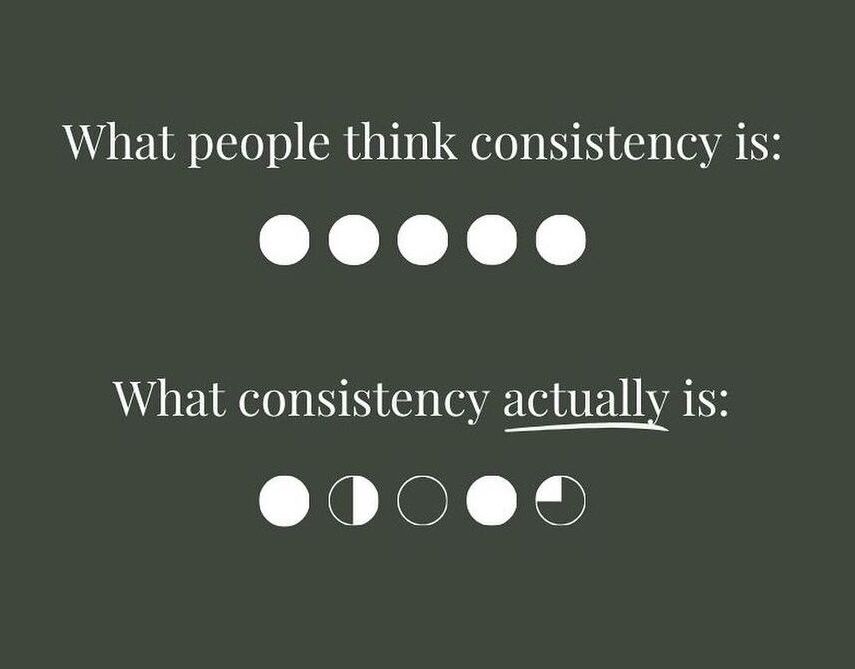
How to Write a Gratitude Journal for a Happier Life

About Ana Juma
Keeping a diary from a young age has encouraged me to explore writing as a vehicle of self-discovery and expression. Today, I support individuals nourishing and healing their inner lives through words, so we can find meaning in experiences and co-create a kinder world.
Table of Contents
Watch on Youtube
Pin for later!

Let's Connect

In a day and age filled with challenges and distractions, you might have wondered where to find the promise of a brighter outlook on life and a more joyful heart. I’ve got a simple suggestion for you today: the gratitude journal.
Imagine starting your day or ending your evening with a sense of appreciation and contentment, while consciously recognizing the blessings, big and small, that enrich your life. This is the essence of gratitude journaling — a simple yet profound practice that invites us to shift our focus from what’s lacking to what’s abundant in our lives.
In this article, we’ll explore more of:
- Why Is Gratitude Important?
- Benefits of Writing a Gratitude Journal
- How to Start a Gratitude Journal
- Tips for Your Gratitude Journal
- Gratitude Journal Prompts
- Frequently Asked Questions
People have practiced gratitude for centuries, recognizing its value in their day-to-day life. If you need a starting point, here is a piece of wisdom from the famous philosopher, scholar, writer, and statesman, Marcus Tullius Cicero:
“Gratitude is not only the greatest of virtues, but the parent of all others.”
Why, you may wonder? Because grateful living also nurtures awareness, intentionality, and a general sense of joy. It inspires us to do good things (or even greater things), which, in the end, might lead to a more virtuous life.
Why Is Gratitude Important?
The practice of gratitude gives us a new chance every day to appreciate the little joys of life. It challenges the natural tendency of our brains to focus on negativity and trains us to focus on the abundance of good things that surround us rather than the lack of them.
We not only train our minds to focus on the positive aspects of our lives, but also cultivate a deeper sense of appreciation for the beauty and blessings we may otherwise overlook. It ultimately rewires our brains’ perspective to nurture more happiness and actively look for the positive meanings present in our day-to-day living.

Benefits of Writing a Gratitude Journal
Even if the practice of gratitude isn’t a miraculous overnight transformation tool, regularly reflecting on the things we’re thankful for can unlock a host of compelling benefits:
1. Reduces anxiety and stress
A gratitude journal serves as a beacon of positivity when our lives are dominated by anxiety and stress. By intentionally directing our attention towards the things we’re grateful for, we train our minds to focus on the abundance rather than the scarcity in our lives.
This practice trains, what psychologists call, our negativity bias. Simply put, our minds are wired to pay more attention to threats and dangers as a survival mechanism. However, by focusing on gratitude, we counteract this bias and rewire our brains to notice and appreciate more of the beauty, kindness, and seemingly insignificant joy that surrounds us.
2. Improves self-esteem
Gratitude has been shown to have a profound effect on self-esteem and overall self-perception. One 2015 study suggests that people who practiced gratitude consistently scored a higher scale of self-esteem and life satisfaction.
This connection between gratitude and self-esteem suggests that acknowledging and valuing one’s own strengths and accomplishments can lead to greater psychological well-being. Embracing gratitude as a daily practice not only fosters a positive mindset but also nurtures a deeper sense of self-acceptance and appreciation.
3. Increases personal fulfillment and joy
Joggling with the stress of our day-to-day lives can often leave us feeling depleted and exhausted to reflect on our sense of personal fulfillment.
However, the good news is that increasing a general sense of joy in your life doesn’t have to take so much time and effort. In fact, a 2017 study conducted on Turkish first-year college students showed that life satisfaction, college adjustment, and positive affect improved massively after only 3 weeks of implementing a gratitude journal practice.
4. Enhances self-awareness
When we consciously take the time to reflect on the things we’re grateful for, our sense of awareness heightens. We may be more attuned to the present moment and our inner experiences, as we begin to notice the patterns of thought and behavior that contribute to the sense of gratitude.
The more we develop a deeper understanding of ourselves and our values, the more insight we gain into what truly brings us joy and fulfillment. This increased self-awareness enables us to make conscious choices aligned with our authentic selves, leading to greater personal growth and well-being.
5. Nurtures relationships
The famous French novelist, Marcel Proust, beautifully said:
“Let us be grateful to people who make us happy, they are the charming gardeners who make our souls blossom.”
Studies have, indeed, found that gratitude creates the perception of responsiveness to others’ needs in long-term relationships. In turn, this practice motivates the partner to engage in relationship maintenance, promoting a deeper sense of harmony and connection.
6. Promotes goals’ achievement
Gratitude plays a pivotal role in promoting the achievement of goals by fostering a mindset of resilience, motivation, and perseverance. When we take the time to express gratitude and celebrate our accomplishments along the way, no matter how small, we reinforce a positive feedback loop that fuels our momentum toward success.
This sense of accomplishment serves as a powerful source of motivation, inspiring us to overcome obstacles and continue striving toward our aspirations. Therefore, it empowers us to stay committed to our goals, propelling us to live an even more inspiring life.
7. Boosts physical health
The practice of a gratitude journal can act so deeply as to improve our health, from mental to emotional to physical. A systematic review conducted in 2020 showed improvements in sleep quality, glycemic control, asthma control, blood pressure, and eating behaviors. The research is still preliminary, although it highlights demonstrated improvements.
Moreover, going beyond major health benefits, a daily gratitude practice releases dopamine in our brains. This makes our bodies feel its benefits on a physical level, nurturing a good kind of dependence on gratitude’s feel-good hormones.
How to Start a Gratitude Journal
Sometimes, the first step is the most difficult one. That’s why I’ve broken down the most important things to keep in mind when beginning your gratitude journey:
1. Pick a journal
You can pick and choose from a variety of different journals. Here are a few ideas for you:
- Multi-purpose journal. The pages can be blank, lined, or dotted, and you may keep this journal for gratitude, as well as other thoughts, ideas, or reflections. This journal may serve as a safe space for solace and introspection.
- Guided journal. Being a great option for beginners, a guided journal consists of prompts to nurture your sense of gratitude. It can also provide structure to your gratitude routine, which will be easier to integrate into your day-to-day life (you can check out the Life Journal if you feel called to a bit of guidance at the beginning of your journey).
- Dedicated journal. You can, of course, have a special journal kept for your gratitude practice. This notebook may be chosen to hold space for your thankfulness and awareness of life’s little joys (you can check out the Prophsee Classic if you feel drawn to a handmade high-quality inspiring journal).
No matter what option you choose, it’s important to create a sense of connection to the practice of gratitude itself. A beautifully hand-picked notebook might nurture more enthusiasm for the practice, but the good old pen and paper work just fine as well. 🙂
2. Make gratitude a habit
You can try to establish a regular habit of gratitude journaling by setting aside a few minutes each day to reflect on what you’re thankful for. As the saying goes, consistency is key, so choose a time that works best for you, whether it’s in the morning to set a positive tone for the day or in the evening to reflect on moments of gratitude before bed.
To make it easier, you may choose to decide on the habit, time, and space needed for this new practice you’d like to introduce into your life. Taking the following sentence as an example might help to organize your thoughts:
- I will write in my gratitude journal (habit) at 9 pm every night (time) in my bed (space).
There’s no specific recipe for success, so find what works best for you. One thing to keep in mind is to have patience, kindness, and resilience during the process, and always remember the why behind your choice to begin this transformative practice.
3. Be specific and feel it
The third step is key to fostering gratitude. You shouldn’t force yourself to feel grateful, but find the things that are truly meaningful to you, as simple as they are. You can search through many areas of your life, such as:
- Health
- Finances
- Family
- Relationships
- Past
- Present
- Future, and so on.
Whenever you find the littlest element of your life that sparks gratitude, write it down specifically and reflect on how it makes you feel. Take, for example:
- I am grateful for my cat, because she makes me feel loved.
The practice of gratitude is deeply linked to nurturing your emotional world, so don’t focus solely on the routine of writing down mechanically what you think you should say, but rather what truly feels significant in your life.
Tips for Your Gratitude Journal
Here are a few tips and tricks to keep in mind when focusing on the gratitude practice:
- Set aside a specific time for reflection. As mentioned before, having a time and space to associate with your practice helps integrate it into your daily life. Moreover, it might encourage you to look forward and prompt your brain to sense when it’s the moment to connect to the sense of gratitude within.
- Allow yourself to feel. Don’t hold back on the feelings that come up during your practice. Sometimes, going over the things we feel grateful for, might bring up more complex and intense emotions, but it’s only a good time to let them flow and release.
- Consider using prompts. Prompts provide guidance and structure to thoughts and feelings when our minds feel chaotic. Having gratitude journaling prompts and questions that inspire you to reflect might enhance and deepen your practice.
- Explore different facets of gratitude. It’s important to be grateful for the simple things, but gratitude can have many facets. You can think about finding thankfulness in kindness, resilience, beauty, courage, or peace, and remember that gratitude doesn’t only have one valid definition for everybody.
- Make it meaningful to you. You don’t need to feel the pressure of having a specific narrative of gratitude in your life. The reasons for your thankfulness can be unique, just as you are.
- Go into detail. The intensity of gratitude can be amplified as you go into more detail about a specific occasion when you felt thankful. “I am grateful for the stranger that paid for my coffee on Wednesday” will be more powerful than “I am grateful for the kindness of strangers” (although, of course, true).
- Appreciate the lessons. Sometimes we only take into consideration the things that would additionally make our lives better, but forget about the hardships we’ve been through that actually enrich our present. So, take a moment to be grateful for the lessons you’ve learned and how much you’ve grown through the difficult times that have passed.
These are just a few tips to use as guidance if they resonate with you. However, the most important thing is to start your practice, let yourself enjoy it, and see the benefits gently blooming in your life.
Gratitude Journal Prompts
While the act of expressing gratitude is inherently beneficial, prompts offer structure and guidance, helping you uncover moments of appreciation you might otherwise overlook. They encourage you to explore different facets of gratitude, from acknowledging the kindness of others to recognizing the beauty in everyday moments.
Here are a few examples to start with:
- What made you smile today?
- Who are you grateful to have in your life, and why?
- What small victories or accomplishments are you celebrating?
- What are you grateful for in your surroundings or environment?
- Reflect on a moment of kindness you experienced or witnessed today.
- What are three things you thank yourself for?
- Consider a challenge you’ve overcome recently and find gratitude in the experience.
- Write about a lesson you’ve learned from a difficult situation.
- What are you looking forward to in the near future?
- Reflect on a specific moment today that brought you joy, peace, or contentment.
- What do you often take for granted and would like to feel more grateful for?
- Think about someone who has inspired you lately and write about why you’re grateful for them.
- When you think about nature, what are you grateful for?
- What music are you grateful to listen to? What about the art you appreciate?
- What past experience shaped you, no matter how hard it was, and you’re feeling grateful for it?
- Write a letter of gratitude to someone who has made a positive impact on your life.
- What would your future self be grateful for if you looked back on your present life?
- Reflect on the last time you laughed out loud that you feel grateful to have experienced.
Oftentimes, our life is filled with endless amounts of gratitude-worthy moments. However, life gets busy, and we might get lost in the waves of emotions, tasks, and responsibilities, forgetting to take a few moments to breathe, appreciate, and reflect. You may take a second to do that, just now.

Frequently Asked Questions
Starting a new practice can be daunting at times, and many questions may arise. Here are a few of the most common ones I get from you:
1. Do I have to write every day?
No, you don’t have to write in your gratitude journal every day. However, keeping a consistent practice is important, so you can slowly begin to rewire your brain for positivity.
From the perspective of making a new neural installation, the brain loves (and needs) repetition. Remember that life will get in the way, so don’t be too harsh on yourself. Your focus in the whole process is nurturing a grateful living day by day, on and off the page.
2. What if I forget?
Always remember that we’re all just humans, and implementing a new habit may be challenging in the beginning. Whenever you forget, just pick it up where you left off and focus on building resilience, rather than perfection. This practice isn’t supposed to be a stress in your life, but a new resource of joy and fulfillment.
Keeping your journal where you can see it easily (next to your bed, for example) can act as a visual cue to incorporate the habit more easily into your routine.
3. How do I practice gratitude?
As mentioned before, the whole purpose of a gratitude journaling practice is to appreciate your life more. The more attention you pay to the things you feel grateful for, the more reasons for gratitude you will start to notice.
Writing them down is part of your practice, but you can also take a few moments during the day to just breathe in gratitude. It doesn’t have to be longer than your sip of coffee in the morning, appreciating the sunset driving back home, or that glimpse of a smile when your friend looked more beautiful than ever.
Live Gracefully (And Gratefully)
Practicing gratitude is about recognizing and appreciating the joys that already exist in your life, regardless of the circumstances. And each entry in your gratitude journal is not just a momentary reflection, but a small celebration of life itself.
What if we approached each day with a heart full of appreciation? How might our relationships, work, and overall sense of fulfillment transform?
If you need extra guidance as you embark on this journey, explore the Life Journal I created for you. It might be your place to start rejoicing in the potential of a new exciting life you’re about to create.
7-Day Free Journaling Journey
Keeping a journal for personal growth is one of the most powerful, yet simple (and affordable) rituals you can cultivate. Join me to receive daily emails for a week to help you start writing a journal today.

Hello, I'm Juma
Keeping a diary from a young age has encouraged me to explore writing as a vehicle of self-discovery and expression. Today, I support individuals nourishing and healing their inner lives through words, so we can find meaning in experiences and co-create a kinder world.
Pin for later!


